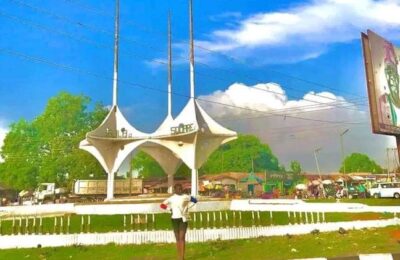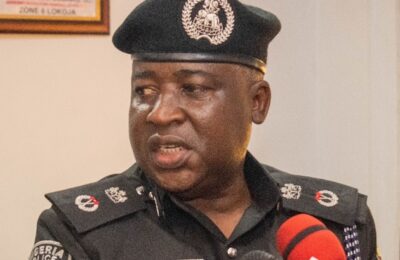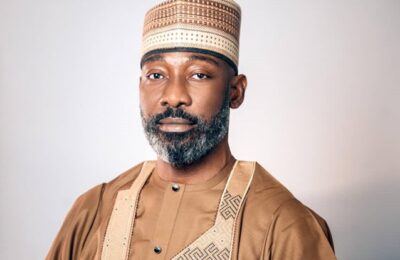Let me begin by appreciating the Festival Management Committee for inviting me to this event as the Guest Speaker. I must state that though the notice given to me by the Festival Director, Dr Daniel Chikada , was short, under a week, he must have had the confidence that I will deliver even if given a day’s notice. This confidence stemmed from his association with me for close to two decades now as an intellectual, writer and colleague in the cultural industry. He is also fully aware that for about 25 years now ,I have been working in an agency of government whose major business is organizing national festivals and monitoring and participating in various States, communities and international festivals. It is also on record that I have participated actively as a side event organizer and as an adjudicator in the 2017 and 2018 editions of Nzeh Mada Festivals when my good friend, brother and long standing institutional projects partner, Prof. Emmanuel Dandaura was the Festival Director. I had fond memories of my involvement at those Festivals ,relished when days after the end of the 2017 Festival, I received an unexpected call from His Royal Majesty, The Chun Mada , conveying his appreciation for my participation at the Festival. I felt highly honoured by that call and I pledged to him that I would always be ready to do anything to advance the cause of the Mada nation culturally. I had looked forward to attending another Nzeh Mada Festival but have not had another opportunity until today.
A lot has happened in Nigeria , Nasarawa State and within the Mada nation itself since the last time I was here in 2018 and some of those things impinge on the theme of this 2023 Nzeh Mada Festival which is Uniting Our Differences Through Cultural Festivals. This theme is topical as it encapsulates issues and concepts that have been at the root of our struggle towards achieving a more stable, progressive and developed nationhood since our coming together as a people through colonial proclamation in 1914 and the attainment of self-rule in 1960. The different aspects of the theme such as Unity, Difference and Festival are relational as we will come to unravel in the cause of this speech.
Negotiating Unity within Differences
The problem of unity in the national and sub-national levels in Nigeria is unending due to the sheer diversity of the ethnic groups with distinctive languages and cultures that make up the country. Scholars have not been unanimous on the exact number of the ethnic groups and languages that make up the country. Nigeria is recorded to have “over 250 ethnic groups … with over 500 distinct languages indigenous to the people”(Ayakoroma, 2015); or declared to have “ over three hundred ethnic groups and clearly above six hundred distinct languages and dialects, as found in the 774 local government areas, of her 36 states and the Abuja Federal Capital Territory’(Tume,2021) and yet seen as “the only country in the world with about 480 ethnic nationalities …” and “each has a_ traditional core territory or culture area and a_ core language”(Onwuejeogwu,2007). This multi-ethnic and multi-cultural composition of the country made up of significantly distinct nations within the larger artificially created State has played up centrifugal forces of all kinds in the political, religious and social planes tearing the State at its seams and making it impossible for the high-end dreams at independence to be achieved. Nigeria, since Independence has witnessed a fratricidal civil war , coups and counter-coups, ethno-religious wars, political and governance crises, rural banditry, pervasive and unceasing politically or economically motivated ethnic nationalism, insurgency and seeming insurmountable crises and conflicts in all parts of the country.
In the midst of all these State’s dysfunction, the national and sub-national governments have been devising all sorts of constitutional and extra-constitutional means to hold the multiplicity of peoples and cultures and ethnic groups together within a united country that will remain and think as one together. The national government that took Nigeria through the Civil War,The Yakubu Gowon Administration , after the war, had to deployed a number of schemes in an attempt to repair and solidify the unity of the country. As such we saw birthed, within the life of that administration and afterwards, schemes and measures
such as:
Programmes e National Sports Festival
National Youth Service Corps
Unity Schools & Exchange
States and local government creation
The Concept of Federal Character & the Quota System inscribed in the constitution
The Establishment of Federal Universines and the institution of Cross-Cultural Traditional Rulers Chancellorship Positions
Several national cultural agencies e The National Festival of Arts and Culture.
The above schemes and measures and many more were brought into being by successive governments of Nigeria over the years in order to douse the many tensions brought about by the multi-ethnic nature of the State and to forge a sense of unity for peaceful co-existence, harmony and national development.
Festivals and their Typologies
Out of all the schemes and measures instituted by the State to engineer and foster unity in the country, we are singling out festivals as signposted by the National Festival of Arts and Culture(NAFEST) at the national level and the Nzeh Mada Festival at the local cum community level. Festivals are organized at a given time and space to showcase the cultural potentials of a people (Ayakoroma, 2015). Festivals can be further defined as “ a fundamental aspect of a people’s culture. They are special events organized by communities to celebrate specific aspects of their collective life (Tume, 2021). Festival are often ceremonial, featuring surfeit of events derived from the tangible and intangible heritages of a people and are put up to mark a cycle in the life of a people or occurrences .of symbolic and special importance to the people (Duruaku, 2010). Festivals can be grouped into various types, which for the purpose of this talk, we shall be adopting the British Council festival survey classifications ( British Council,2016. We thus have the government festivals usually organized by federal or state governments such as the National Festival of Arts and Culture(NAFEST);, traditional festivals organized by local communities such as the Nzeh Mada Festival and independent arts festivals set up by independent bodies to propagate or popularize a targeted art form such as literary, books and arts festivals, film festival, music festival ,drums festival ,poetry festivals, dance festivals and many others.
Cultural Festivals as Agents of Unity
Traditionally, in most communities, when the farms have been harvested and the
next planting season is being expected, then it is time to commune with history, tangibie and intangible heritages with the staging of festivals that underpin the people’s existence. Nigeria can thus be described as a rainbow land of festivals.
There are as many festivals as the number of ethnic groups and distinct cultures we have in Nigeria. They are so many and can be further classified “into the famous and not so famous’'(Awofeso,2013 )
depending on the popularity of such festivals or the lack of it in the people’s imagination, the size, cultural tenacity and industry of the ethnic groups where such festivals are held.
Festivals have some innate characteristics which makes them to be considered as veritable tools for settling differences , blurring dividing lines and creating harmony and understanding. The qualities are as follows:
They involve a mass of people in a participatory, festive and entertaining shared atmosphere thereby building friendship and forging new relationship
They are organized in a consultative and consensual manner across a broad spectrum of stakeholders and participants.
They promote a sense of identity and general socio-cultural and spiritual well-being within an ethnic group
They create opportunity for neighbouring communities to a particular ethnic group celebrating a festival to participate and identify in shared similarities
A festival being celebrated is often a sign that all is well with the celebrating community and a festival not being celebrated denotes communal misalignment and discordance.
Festivals are often social construct of peace , truce from extant conflicts and seal for enduring understanding.
Unity in Diversity: The National Festival of Arts and Culture (NAFEST) and the Nzeh Mada Festival Examples.
Out of all the schemes and measures instituted by the State to engineer and foster unity in the country, we are singling out two festivals which are the National Festival of Arts and Culture (NAFEST) at the national level and the Nzeh Mada Festival at the local cum community level.
It was the understanding and realization that the various traditional festivals celebrated in communities around Nigeria in the pre-colonial and post-colonial eras that made the Federal Government of Nigeria in the year 1970 to institute a national festival in an attempt to heal the wounds of the 1967-1970 Nigeria Civil War and culturally reintegrate the liberated secessionist Eastern Nigeria back into the country(Abdullahi,2023). That festival later became known as the National Festival of Arts and Culture and has been organised annually by the National Council for Arts and Culture. The festival presently in its 35″ edition has become the flagship festival of the nation with participants drawn from the 36 States of the Federation including the Federal Capital Territory(FCT) and has the appellation, “the festival that unites the nation” or the “ the national unity forum.”
The festival as stated by Tosin Tume( 2021 ) in her “Awarawani’rawa” conception Of it is a festival in which disparate peoples and cultures are brought together in a congregation that makes them to begin to discover their shared similarities. The “Awarawari’rawa” concept is derived from a Yoruba saying which translates to “when a cat and a tiger(leopard) meets, family reunion occurs.” The saying according to Tosin Tume symbolizes that though the cat and the tiger or leopard have different characteristics in shapes, sizes and colours but they still belong to the same feline family. This conception can be extended to the Nigerian situation where we have immense multiplicity of ethnic groups but on a closer look at the histories, evolution, migrations, languages, tangible and intangible cultural markers of each of the ethnic groups , we discover astounding shared manifestations of similarities. This reinforces the fact that we are all the same people and that culturally Nigeria is more united than ordinarily and outwardly conceived.
It is this unity that has become the default ideology of the National Festival for Arts and Culture(Tosin Tume,2021 ). NAFEST is thus a unitary ideological construct of the Federal Government of Nigeria to integrate the people of Nigeria culturally by bringing the diverse people together in a week long festival of competitive and non-competitive events ranging from the performative arts , literary arts, visual arts, and crafts display, traditional sports, children’s performances, textile and fashion shows, traditional architecture display , Cultural colloquium, cultural skills, acquisition, culinary exhibitions, culture quiz, command performance, opening and closing ceremonies, cultural march past and to other specialized events.
The festival is designed in such a way that all the participating States and agencies are taken through a consultative meetings twice a year to deliberate and agree on a given theme and the nature of the coming festival events, which culminates in a festival syllabus with which all the states use in packaging their events to the festival. These meetings and the syllabus eventually teases out shared similar cultural taits in the various events showcased by the states at the festival even in the midst of some spectacular performances of differences that may come up at the festival. NAFEST in its continuous emphasis every year in promoting shared cultural similarities and the understanding of the marked differences in a general convivial festive atmosphere and in its rotation of its hosting across different parts of the country has immensely contributed to the maintenance of Nigeria’s unity and Identity.
Theoretically, the traditional local communities festivals such as the Nzeh Mada Festival , Eyo Festival , Osun Osogbo Festival, Vonum Farai Festival, Ovia Osese Festival, Nzem Berom Festival, Argungu International Fishing Festival, Leboku Festival, Oluwo Festival, Ofala Festival and many more all predated the National Festival for Arts and Culture. NAFEST is thus a derivative of all these festivals as we posited earlier. Each community festival is in turn derived from the worldview, performed identity, natural environment , history , material and non-material culture and philosophical constitution of the people. That is why we can notice some differences and peculiarities in the celebration of festivals as we move from one community to the other . These peculiarities and differences become pronounced as we move farther afield. Thus a traditional festival celebrated in a far Northern Nigeria community will have some marked difference from the one celebrated in the coastal riverine communities of Southern Nigeria; though we could find songs and dances in both. In Central Nigeria in which the Nzeh Mada Festival of the Mada nation is celebrated, we can see featured “cultural activities, such as dance, music, masquerade display, cooking competition, wrestling, debate, Mada heritage exhibition and even Beauty Pageant (Ayakoroma, 2015). Of course, the Nach Mada Festival be celebrated today must have evolved in character and intensity and in terms of constitute events from the ones celebrated in the historical antiquities of the people but what is very apparent is that it has retained the identity of the people and has preserved the special imprimatur of their culture for the veneration of outsiders to the culture(for example as see in the Mada special shoulder swinging dance) and most importantly it has kept the people united. The Mada nation is located in a State, Nasarawa State, which is like a mini Nigeria with the plethora of ethnic groups such as the Agatu, Aho, Alago, Chesu, Eggon, Gbagyi Gwandara, Kantana, Rindre, Mada, Egbura, Tiv and Migili, Hausa, Fulanı, Lafia-Beribari among other minority ethnic groups also located in the State. All these other ethnic group can be considered as neighbours to the Mada and undoubtedly share some similar cultural traits with the Mada essentially when we put some of the ethnic groups with the larg historical Kwararafa Kingdom construct. The celebration of the Nzeh Mada Festival cannot be without the invitation of these other ethnic groups to the festival and in return when the celebrate theirs the Mada people will also be invited. Traditional festival celebration of old was never complete without the invitation and active participation of neighbouring or even far-flung communities. This has been the African homegrown way of exercising cultural diplomacy, blurring differences, building peace and maintaining a harmonious existence. People attend festivals for various reasons, which includes enjoying cultural spectacle, engaging in trading, feeding taste buds with exotic foods and drinks and finding lifelong partners.
All of us gathered here today fall into one category or the other. Let us begin to imagine a situation where every ethnic group in Nasarawa State actively celebrates its own unique festival and make it a duty to invite all other ethnic groups to participate. Let us all imagine a situation where every year a Nasarawa State Festival of Arts and Culture tal place where all the ethnic groups are brought together in a cultural fiesta like in the Nation Festival of Arts and Culture.
We can only imagine how much that will contribute sustaining unity and peace among the people of the State. Nasarawa State is a cultural rich State by virtue of the exciting cultural diversity of the State. I remember this same State at a point in time successively won the first position successively five times at the yearly National Festival of Arts and Culture and as as insider in the organization of that festival I must state that the culture and cultural technical expertise of the Mada nation contributed immensely to those successes.
Maintaining the Agency of Cultural Festivals as Bastions of Unity Some Basic Proposals
At this point, we have shown that cultural festivals of all kinds are the bastions of promoting unity in a diverse society such as we have in Nigeria. Therefore we must ensure this unique agency of cultural festivals as centre points of unity is preserved and furthered by doing the followings
Keeping cultural festivals away from political interference
Toning down the pressure of modern religions on traditional cultural festivals
Avoiding the unnecessary fossilization and fetishization of aspects of cultural festivals
De-emphasizing the ritualistic aspects of cultural festivals and projecting the entertainment and material aspects
Projecting the economic and touristic aspects of cultural festivals but not at the expense of the artistic aspects Using the four- Schema of Retrieval-Preservation-Revival-Promotion(Ukala 2010) to rejuvenate cultural festivals
Fashioning cultural roles for the traditional leadership institutions as champions of the celebration of cultural festivals and inscribing it in the national constitution
Making traditional rulers to chair the governing boards of national and states cultural agencies even if in a ceremonial capacity
Ensuring the regular celebrations of cultural festivals to deepen the use of it to keep peace, unity and maintain harmony in the communities.
Conclusion
Cultural festivals by their nature are festive, celebrative and ceremonial events which bring people together in a convivial physical space with an admixture of liminality to glory and exhibit identity tangible and intangible heritages as expressed in performative and other kinds of events within a given period of time. Our talk has been able to define and put into contexts the uniting propensities of various cultural festivals celebrated in Nigeria with particular emphasis on the National Festival of Arts and Culture (NAFEST) as a derivative of traditional festivals such as the Nzeh Mada Festival of the Mada People of Nasarawa State of Nigeria. Our exploration of the utilitarian values of cultural festivals in uniting people of disparate cultures made us to conclude by making some proposals on steps to take in sustaining the celebration of cultural festivals in our nation pulled in different directions by social, ethnic, religious, economic ad political tensions.
By Olaniyan Akinwale Oluwafemi
National Museum of Colonial History Lokoja




